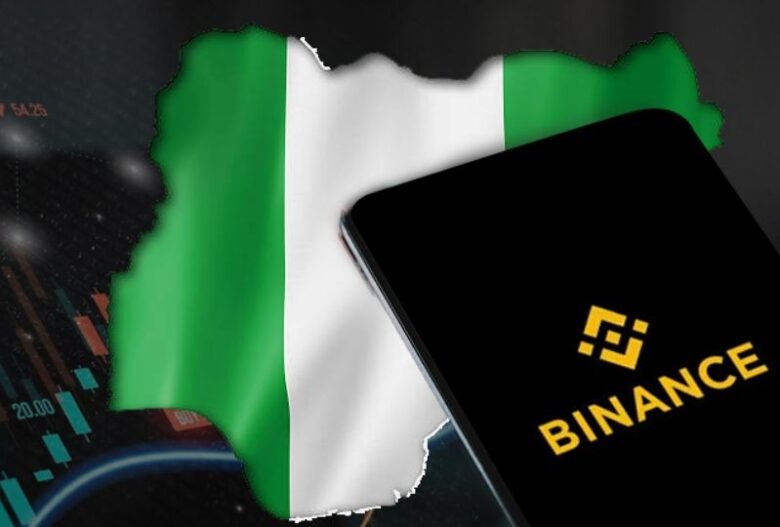Cryptocurrency trading platform Binance has outlined two conditions that must be met before registering with Nigeria’s Securities and Exchange Commission (SEC) under its Virtual Assets Service Providers (VASPs) framework.
This move is in response to Nigeria’s regulatory body setting out frameworks for cryptocurrency platforms, which includes opening an office in the country.
According to the SEC’s framework, virtual asset service providers and token issuers operating in Nigeria or offering services to Nigerian consumers must register. This includes platforms facilitating digital asset transactions, exchanges, and transfers.
The SEC has already granted Approval-in-Principle to two crypto exchanges, Quidax and Busha, recognising them as legitimate crypto trading platforms in Nigeria under the Accelerated Regulatory Incubation Programme (ARIP).
Cryptocurrency transactions are taxable in Nigeria, with a 10% levy on the disposal of digital assets, including cryptocurrency. The Nigerian government has been working to regulate the crypto space, with the SEC updating its guidelines for crypto service providers in March 2024 to prevent money laundering and terrorist financing.
Binance gives condition
In response, Binance stated that two conditions must be met before it may consider joining ARIP.
One of the conditions is the release of Detained Binance Executive, Tigran Gambaryan. Binance believes that its executive must be released from Nigerian custody before it can explore joining ARIP.
The other condition is settlement with the Nigerian Government. Recall that Nigeria’s Minister of Information, Idris Mohammed, had accused Binance of having a turnover of over $20 billion in Nigeria in 2023 alone, without paying taxes.
The federal government has already commenced prosecution of Binance on the grounds of tax evasion, money laundering, and foreign exchange contravention, while the platform denies these allegations.
Binance stressed that until legal and regulatory bottlenecks with Nigerian government authorities are resolved, coming under the SEC’s program is not in view.
“We are pleased that Nigeria is making progress in the development of its digital assets regime. We hope that someday soon, once Tigran has been freed and our issues are settled, we may seek registration,” a Binance spokesperson stated.
Should Binance comply with the SEC framework?
According to our source at the SEC, Binance still enjoys significant patronage from Nigerians and does not see the need to comply with the Commission’s onboarding framework, which mandates that all VASPs, including crypto firms, establish an office in Nigeria under ARIP.
The source, who chose not to be named because the official was not authorised to speak, mentioned that many VASPs’ requests to join the framework are currently pending.
The source said the Commission anticipates Binance will register in Nigeria, although the crypto exchange firm does not see the need due to its patronage from Nigerians.
The official stated that Nigerians still trade with Binance, but the only restriction is on bank transfers.
“Binance is not regulated by the SEC in Nigeria. That is why we are trying to make them register, but they say they don’t need to register because Nigerians already have access to their platform. That is why they are not coming to register. They see no need,” the source added.
The official also revealed that, due to ongoing court cases against Binance in Nigeria, the platform has somewhat reduced its influence on Nigerians, although Nigerians still use Binance features through virtual private networks (VPNs) and other means.
The official emphasised that the SEC does not regulate foreign crypto firms, but under its rules, every foreign crypto platform must establish an office in Nigeria so the Commission can supervise them.
The source added that, in the long run, Binance will have to register due to the high number of Nigerians trading on their platform.
Nigeria ranks among the countries with the highest and fastest rates of cryptocurrency adoption, with over 22 million people (10.3% of the population) actively owning crypto assets.
A crackdown by the Nigerian Securities and Exchange Commission (SEC) on peer-to-peer naira trading led major platforms, including Binance and KuCoin, to delist the naira from their services.
The ongoing dispute between Nigerian authorities and Binance, the world’s largest crypto exchange, has garnered widespread media attention.
In a statement released on September 3, 2024, a Binance spokesperson asserted that Nigerian authorities do not need to detain Tigran Gambaryan to resolve any alleged past issues.
However, the Nigerian government claims Gambaryan was involved in facilitating violations of the country’s laws.
The outcome of this legal battle now rests with the Nigerian courts, with the crypto industry closely watching for the final verdict in the government’s case against Binance.









Got a Question?
Find us on Socials or Contact us and we’ll get back to you as soon as possible.